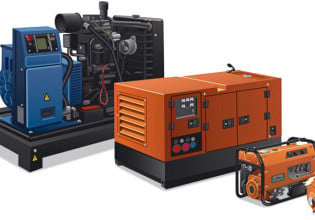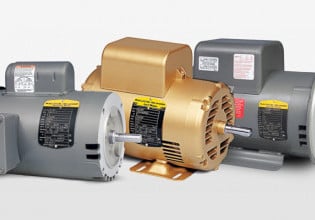Research Targets Cobalt-Free Alternatives for EV Batteries
A research team believes it has found a more sustainable alternative to the cobalt used in electric vehicle batteries.
Cobalt is one of the most expensive metals in battery manufacturing, contributing significantly to the overall cost of electric vehicle (EV) batteries. Moreover, reliance on cobalt cathodes in lithium-ion batteries raises economic and ethical issues, which add to the imperative to reduce or eliminate cobalt use.
Drill cores from a cobalt-copper mine. Image used courtesy of U.S Geological Survey
A research team has created a more sustainable alternative to cobalt for EV batteries using an organic cathode material.
The Cobalt Dilemma
Cobalt significantly contributes to the performance and longevity of lithium-ion (Li-ion) batteries, making its removal a complex issue. From an electrochemical perspective, cobalt aids the high energy density of Li-ion batteries, which directly translates into more power and a longer range for the vehicle. Finding alternative materials to match or exceed the energy density provided by cobalt without compromising on other performance aspects like cycle life and charging speed remains challenging.
The structure of a lithium-cobalt-oxide battery. Image used courtesy of the University of Michigan
At the same time, cobalt is critical in maintaining the battery’s structural integrity during charge and discharge cycles. In Li-ion batteries, particularly those using lithium cobalt oxide or nickel-manganese-cobalt chemistries, cobalt enhances the stability of the cathode material. This stability is crucial for preventing the cathode from degrading over time, which can lead to a loss of battery capacity and efficiency. Cobalt's ability to endure high temperatures also helps maintain battery safety, reducing the risk of thermal runaway, a major concern in EV batteries.
So far, efforts to replace cobalt have led to the exploration of various alternative chemistries, including lithium iron phosphate batteries. However, achieving the right balance between performance, safety, cost, and ethical sourcing without cobalt remains a formidable hurdle in the evolution of EV batteries.
Cobalt-Free Research
Researchers have made a significant advancement toward replacing cobalt in electric vehicle batteries. The group focused on developing a sustainable and efficient organic cathode material, bis-tetraaminobenzoquinone (TAQ).
Schematic representation of the redox mechanism of TAQ. Image used courtesy of Chen et al.
In their methodology, the team synthesized TAQ using Michael condensation of tetraamino-p-benzoquinone, meticulously verifying its crystalline structure through various sophisticated techniques, including wide-angle X-ray scattering, scanning electron microscopy, and cryogenic electron microscopy. TAQ demonstrated a high theoretical specific capacity of 356 mAh g−1, attributed to its dense arrangement of redox-active groups. Its structural composition, characterized by strong intermolecular hydrogen bonding and π−π interactions, rendered it insoluble in common battery electrolytes and endowed it with extended electronic delocalization and high bulk electrical conductivity.
A key innovation of TAQ lies in its two-dimensional layered arrangement, which facilitates the easy insertion and extraction of Li+ ions. This structural feature is crucial for its rate capabilities, allowing for rapid charging. Additionally, neat TAQ electrodes showcased impressive stability, maintaining their integrity for over 50 cycles at low charge-discharge rates and exhibiting notable capacity retention even at high areal mass loadings.
A Cleaner EV Future
The study addresses the critical issue of cobalt in EV batteries from multiple angles.
Eliminating the need for cobalt confronts the ethical and supply chain issues linked to cobalt mining. TAQ’s superior electrical conductivity and structural stability make it a feasible alternative to cobalt-containing cathodes, ensuring robust performance.
Furthermore, TAQ's environmentally friendly and scalable synthesis aligns with the growing need for sustainable energy storage solutions, essential in the rapidly expanding global EV market. Through this work, the team is offering a viable solution to the cobalt dilemma in EV batteries.









